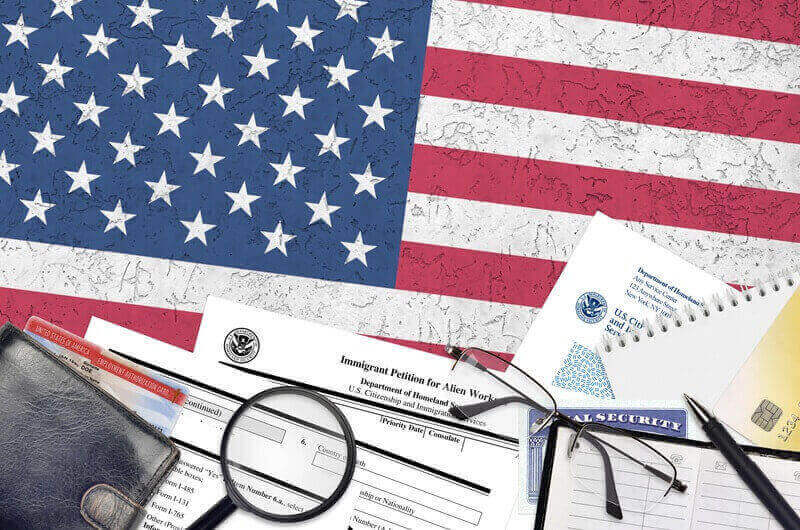Common Errors You Can Prevent In Citizenship Application
Takeaways:
Texas plays a huge role in the U.S. asylum system, but it’s not easy. Denial rates are high in some courts, and immigration policies vary by region. Still, many citizenship applicants succeed with preparation and legal support. Understand your location, your judge, and your documents. Filing correctly and telling a consistent story can strengthen your case. Legal help is key, especially in a fast-moving or challenging environment.
Texas offers a complex landscape for asylum seekers, welcoming in some respects, harsh in others. Each city can mean a very different experience, from bustling border checkpoints to overloaded immigration courts.
If you’re applying for asylum in Texas, you must understand the terrain. Whether you’re already in the state or considering it, knowing what to expect can help you move forward with confidence.

Facing The Journey With Eyes Wide Open
Starting an asylum case is emotionally, legally, and logistically intense. In Texas, this journey includes both opportunity and challenge. The state has major immigration hubs, but also stricter enforcement actions and court bottlenecks.
Applicants face a patchwork system where outcomes can vary dramatically by location. For example, the denial rates in courts like Houston and Harlingen have historically been higher than the national average. Still, with the right preparation and support, many people do win their cases, even in Texas.
The key is entering this process informed. Know your deadlines. Know your rights. And most importantly, know that you are not alone. Legal support, as trusted guides like us, are here to walk with you through it all.
Expect Problems For Incomplete Or Incorrect Application
An incomplete asylum application is one of the most common reasons cases get delayed or denied. Texas officers and courts are strict about paperwork you fill out on time and correctly.
What To Watch For
- Leaving sections blank on Form I-589.
- Forgetting to include a declaration or supporting documents.
- Using outdated forms or filing in the wrong jurisdiction.
These may seem like small errors, but in a high-volume system like Texas’s, USCIS or EOIR may not give second chances.
Accuracy and attention to detail protect your case. Before you submit anything, double-check your forms, or better yet, have someone experienced review them. One mistake can cause major delays.
Don’t Slip Up On Fees Or Filing Procedures
While there is no fee for Form I-589, mistakes in submitting supporting forms or failing to track receipt notices can create huge setbacks in your case.
Practical Tips
Include all documents listed in the USCIS checklist, even if not required. If applying affirmatively, file with the correct service center. If you’ve moved, update your address immediately using Form AR-11.
Texas’s immigration system moves quickly. One missed document or incorrect address could mean missing a court date, or worse.
Keep proof of every step, filings, mailings, and notices. Build a paper trail that proves you met your deadlines. In a system like Texas’s, these details can make or break your case.
Be Mindful Of Residence & Travel History
Where and how long you’ve lived, as well as any past travel, can impact eligibility. Immigration authorities in Texas often scrutinize these details closely during interviews or hearings.
Travel Timing & Your Story
- If you passed through another country before arriving in the U.S., be ready to explain why you didn’t apply there.
- Frequent address changes can raise credibility issues; organize your proof of residency.
- Travel after entering the U.S. may affect your continuous presence claim.
Texas asylum officers and judges often ask tough follow-up questions. Be ready with dates and explanations that match your application.
Provide honest, consistent details about your past. If you’ve moved often or traveled through other countries, explain why. Clear records help establish credibility, especially in a place like Texas.
Good Moral Character, More Than A Clean Record
Texas adjudicators often examine applicants’ moral character, including any minor legal issues, tax history, or public behavior. It’s not just criminal records; they want to see integrity over time.
What Can Raise Red Flags
- Shoplifting or domestic violence arrests, even if charges were dropped.
- Failing to file or pay taxes.
- Getting in fights or disorderly conduct citations.
Even if you’ve made mistakes, these cannot automatically disqualify you. But you must address them honestly and show growth.
Even a dismissed charge or unpaid tax can raise concerns. Show responsibility, remorse, and improvement when needed. Strong character references and proof of community involvement can help affirm your good standing.
Interview Day Mistakes To Avoid
Your interview with USCIS can be a turning point. In Texas, many cases hinge on how you respond under pressure and whether your answers match your written application.
Prepare To Tell Your Story
Stick to the facts you shared in your declaration. If you don’t understand a question, ask for clarification. Avoid exaggerating or contradicting yourself under pressure.
Officers in Texas are trained to detect inconsistencies. Calm, clear answers, rooted in truth, build your credibility.
Practice beforehand. Bring all documents. Answer honestly, even if you’re nervous. Preparation shows. It is your chance to share your truth, and small details can convince officers that your fear is real.
If You’ve Been Denied, Don’t Give Up
Texas courts deny many cases, but that’s not the end. You may still qualify for appeal, motion to reopen, or other forms of protection like withholding of removal or CAT relief.
Options After A Denial
Appeal to the Board of Immigration Appeals within 30 days. File a motion to reopen if new evidence exists. Request prosecutorial discretion if new relief isn’t available.
Your denial letter will explain the reason, and that gives you the power to target your next steps.
A denial isn’t the final word. Many Texans win on appeal. With guidance and persistence, you can still pursue safety. Stay informed, stay grounded, and don’t face it alone.
Know Your Court & Judge
In Texas, where your case is heard can matter as much as what’s in your file. Immigration courts in Texas vary widely in their case backlogs and approval rates.
Why It Matters
- Some Texas courts, like Houston and Harlingen, have historically had higher denial rates.
- Judges have different reputations; some are known for approving cases, others for tougher reviews.
- Knowing your judge’s style can help you prepare better for your hearing.
Tools like TRAC Immigration offer public data on court trends. Being informed helps you anticipate what to expect and how to respond.
Knowledge is power. Understanding your court’s norms and your judge’s tendencies can help you fine-tune your case and prepare mentally for what lies ahead.
Legal Terms To Review
| Legal Term | Plain-English Definition |
| Asylum | Protection given to people in the U.S. who fear persecution in their home country. |
| Expedited Docket | A fast-tracked immigration court schedule that speeds up asylum decisions. |
| Removal Proceedings | The legal process where the U.S. government tries to deport someone from the country. |
| Credible Fear | A key part of the asylum process where you explain why returning to your home country is dangerous. |
| Affirmative Asylum | When you apply for asylum voluntarily before being placed in immigration court. |
| Defensive Asylum | When you request asylum as a defense against deportation, while in immigration court. |
| EOIR (Executive Office for Immigration Review) | The government office that oversees immigration courts. |
| USCIS (U.S. Citizenship and Immigration Services) | The agency that handles immigration applications, including asylum and green cards. |
| Work Permit (EAD) | A document that lets you work legally while waiting for your asylum decision. |
| Asylum Transit Ban | A rule that can make people ineligible for asylum if they didn’t seek protection in another country before coming to the U.S. |
| I-589 | The official form used to apply for asylum in the U.S. |
| Immigration Judge | A judge who decides if someone can stay in the U.S. or must be deported. |
Local Support Can Make A Difference
You don’t have to face the asylum process in Texas alone. Lincoln-Goldfinch Law is here to help guide you, support you, and stand with you every step of the way. How can we help?
Our team lets you understand your asylum options clearly and compassionately. We prepare and file applications, affidavits, and supporting evidence with great care.
If your case heads to court, we’re with you, whether you’re in Houston, Austin, or beyond. We communicate directly in Spanish and English, ensuring no detail is lost when translating.
We treat every case with dignity, because we know lives, not just paperwork, are at stake. Legal support can be the difference between hope and fear.
We fight for you as if you’re family, because to us, you are. You gain more than legal representation; you gain a partner in your journey. We’re here to help you feel seen, heard, and powerfully supported.
If you’re in Texas and applying for asylum, or worried about a past denial, don’t go it alone. At Lincoln-Goldfinch Law, we walk beside you through every stage of the process, from paperwork to appeals.
Take the next step toward safety and stability with someone you can trust.
Contact A U.S. Immigration Attorney Today!
Categories
How To Find Us
What Our Clients Say
“This Lawfirm is great, very professional and helpful. I love that they are always in communication and always available for when you have questions . 100% recommended by me and my family. Thank you Lincoln-Goldfinch Law – Abogados de Inmigración”




